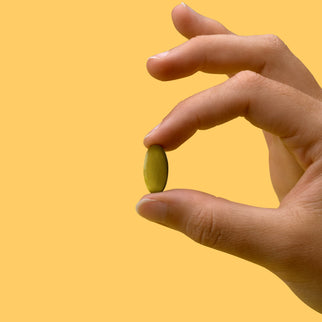Lacing up those sneakers and hitting the trail — there's nothing quite like the thrill of a good run. Running is not only an accessible and convenient form of exercise but also one of the most effective ways to enhance cardiovascular health, build endurance, and even uplift your mood.
But once you've hit that last mile, your job isn't over. In fact, what you do after the run can be just as crucial as what you do during it. Join us as we dive into the importance of post-run recovery with ten tips that will keep you in tip-top shape and ready for your next run.
What Happens to Your Body During a Run?

You've probably experienced the muscle fatigue, shortness of breath, and sweat-drenched euphoria that all come after a good run. But what's happening underneath the surface? A lot.
For starters, your muscles are experiencing tiny tears and soreness. Your joints, especially your knees and ankles, bear the brunt of your body's weight with each step, leaving them tender. Your cardiovascular system is on full throttle by pumping blood and oxygen throughout your body.
All of these physiological changes mean that your body is in a state of temporary wear and tear — but It's a natural process that your body can recover from, provided you take the necessary steps.
Why Is Running Recovery Important?
Muscle repair, energy replenishment, and overall body restoration occur during recovery.
When you give your body the attention it needs, you're setting the stage for improved performance, reduced injury risk, and an overall better running experience.
Failure to recover adequately can lead to a host of problems, like muscle fatigue, joint pain, and even long-term injuries. Ever heard of runners pushing themselves so hard they end up with stress fractures? There’s a way to avoid that.
How Can Nutrition Aid in Running Recovery?
You wouldn't run your car without gas, so why would you run your body without proper nourishment?
The types of foods you consume, and when you eat them, can significantly impact your recovery. Proteins are vital for muscle repair, carbohydrates help replenish glycogen stores, and fats can aid long-term recovery.
Timing is everything when it comes to nutrient intake. Try to consume a balanced meal or snack within an hour post-run — this window is when your body is most responsive to nutrient absorption, setting the stage for effective recovery.
How Does Hydration Impact Recovery?
Your body loses a lot of fluids during a run, and rehydration is crucial. Guzzling water is great, but to charge up your recovery, consider adding electrolyte-packed fluids like sports drinks or coconut water to the mix. These fluids contain minerals like sodium, potassium, and magnesium that your body craves after a strenuous workout.
Just like you wouldn't ignore your nutrition, don't underestimate the power of proper hydration. It speeds up the recovery process, allowing your muscles to repair and energy stores to replenish.
10 Post-Run Tips for Runners
You've caught your breath, downed a cup of water, and wiped off the sweat, but your post-run ritual shouldn't end here. Let’s walk through 10 actionable tips that can help elevate your running recovery.
1. Cool Down Routine
Once you reach the finish line, your body needs a gentle wind-down routine, known as a “cool down.” Spend 5 to 10 minutes walking at a slower pace to ease your heart rate back to its resting state. Incorporate deep breathing exercises to not only relax your cardiovascular system but also clear your mind.
2. Stretching
Warm-up stretches are all about dynamism, but static stretches can be particularly beneficial in a post-run routine. Pay close attention to your calves, hamstrings, quads, and glutes, as these are your powerhouse muscles in running, and they deserve some TLC after all that hard work. Hold each stretch for 15-30 seconds to maximize the benefits.
3. Hydration
You're going to be somewhat dehydrated after a run — no two ways about it. Replenish your hydration levels by drinking water right after you stop. For a boost, consider beverages that contain electrolytes like potassium and sodium. These aid in faster rehydration and can even help stave off muscle cramps.
4. Nutrition
Eating within the golden window — 30 to 60 minutes after your run — can significantly expedite your recovery. Aim for a balanced mix of protein to mend those muscle tears and carbohydrates to refill your energy reserves. A smoothie that combines fruits, protein powder, and a splash of almond milk can be a quick and delicious solution.
5. Rest
Runners are often goal-oriented, pushing the boundaries of what's possible. But remember, your body needs rest to bounce back stronger.Make sure you're taking at least one full day of rest between intense running sessions. And if you're feeling offbeat, don't hesitate to take an extra day off. Your body will tell you what it needs; you just have to listen.
6. Compression Gear
Think of compression gear as a hug for your muscles. These garments, especially socks or sleeves, can mitigate muscle soreness and facilitate better blood circulation. Slip them on for at least 30 minutes post-run, and feel the difference.
7. Ice Baths or Heat Therapy
Ice baths are excellent for acute tension and soreness — and on the other hand, heat therapy can loosen tight muscles and is best for when you don't have acute feelings of tenderness. Choose what best suits your condition; sometimes, alternating between the two can also be effective.
8. Foam Rolling
Foam rolling may hurt a bit, but it's the kind of hurt that heals. Foam rolling, or self-myofascial release, can dig into muscle knots and trigger points, working to relieve tension and ease discomfort. Spend about one or two minutes on each muscle group, especially the ones that feel sore. You'll be surprised how much better you feel afterward.
9. Focus on Mental Wellness Too
Running isn't just a physical sport; it's a mental one, too. Take some time post-run to engage in mindfulness techniques. Whether it's jotting down your run reflections in a journal or meditating for a few minutes, mental wellness is a crucial but often overlooked aspect of running recovery.
10. Cross-Training
Too much of a good thing can be detrimental, running included. Incorporate other forms of exercise like swimming or cycling to give your primary running muscles a much-needed break. Not only does this prevent overuse injuries, but cross-training can also enhance your overall athletic performance.
Can Running Recovery Affect Performance?

The pursuit of better running times and longer distances has us focusing on training hard. But the truth is that recovery can make or break your running performance over time.
Effective recovery enables muscle repair, replenishes your glycogen stores, and gives your nervous system a break. In the long run, this means you can train more intensively and perform better without facing burnout or injury.
Are There Any Risks in Overdoing Recovery?
Believe it or not, there's such a thing as over-recovery. While it's essential to rest and recharge, going overboard can lead to muscle stiffness and, ironically, a decline in performance.
If you find yourself perpetually in “recovery mode,” feeling less enthusiastic about running or noticing a decrease in your stamina, you might be focusing too much on recovery. The key is to find a balance between training and downtime.
What Role Do Other Wellness Strategies Play in Recovery?
Wellness strategies like adequate sleep and stress management play pivotal roles in recovery, too.
A good night's sleep, for example, enhances muscle repair and cognitive function, setting you up for a great run the next day. Stress, on the other hand, releases cortisol — a hormone that can hinder recovery and performance. Practicing relaxation techniques such as meditation can help you manage stress levels and achieve better recovery.
What Can iwi life’s Omega-3 Supplements Do for Your Running Recovery?
Now, let's talk about adding that secret sauce to your recovery regimen: omega-3 supplements by iwi life. These sustainably sourced gems are easier on the ecosystem and equally effective in combating tension and other common ailments in runners. Incorporating these into your diet can support overall muscle recovery and performance in the long run.
The Bottom Line
Running recovery is an integral part of your running journey that can either propel you to new heights or keep you feeling stuck. From hydration and nutrition to foam rolling and omega-3 supplementation, each component has its unique role in shaping your performance.
If you're serious about running, you need to be just as serious about your recovery. Whether you're a weekend jogger or training for a marathon, give your body the TLC it deserves. And why not add iwi life’s omega-3 supplements to your recovery toolbox? It's a small change that could make a big difference.
Sources:
The Truth Behind ‘Runner’s High’ and Other Mental Benefits of Running | Johns Hopkins Medicine
Stunning Images Show How Muscles Heal Themselves After a Workout | Live Science
Running with Heart: How the Body Handles a Marathon | Penn Medicine
Stress Fractures of the Foot and Ankle | AAOS
The Runner's Complete Guide To Electrolytes | Trail Runner Magazine
Injury Prevention: 3 Cool Down Steps for Runners | Penn Medicine
The Best Stretches to do After Running | Runners World
Hydration For Runners: Everything You Need To Know! | Marathon Handbook
5 Times When You Should Skip Your Workout and Take a Rest Day | NBC News
Do Compression Garments Facilitate Muscle Recovery After Exercise? | ScienceDaily
How to Benefit from Mindful Running & Mindful Exercise | Positive Psychology
The Ultimate Guide To Cross Training For Runners | Marathon Handbook



















